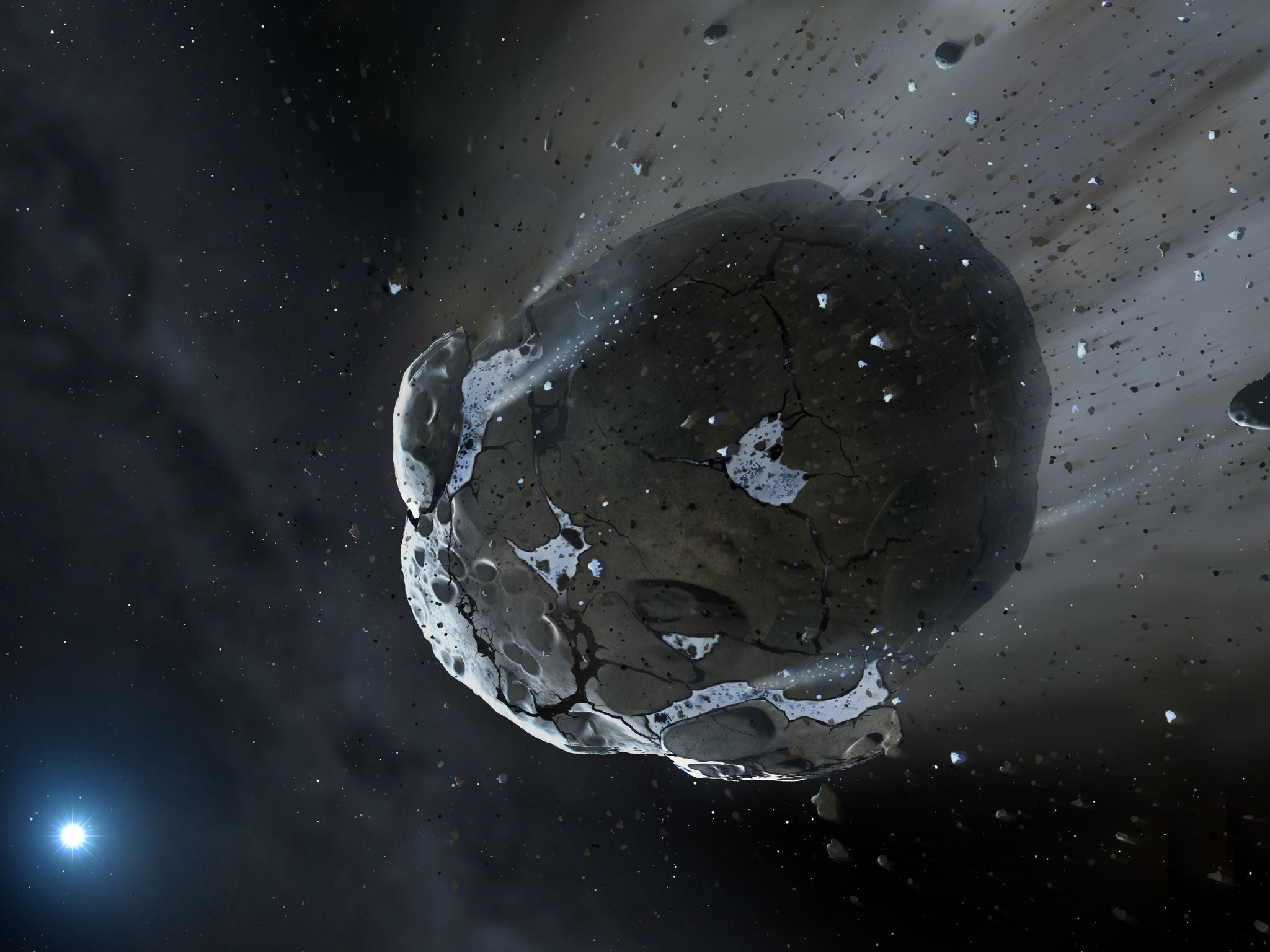Asteroid Icarus to skim past the Earth in rare 'distant pass'
Icarus will not make a closer approach to the Earth until 2090

Asteroid Icarus, the kilometre-long spacerock named after the Greek mythological character that flew too close to the sun, will skim past the Earth on Tuesday night making a rare “distant pass” of five million miles.
According to Nasa, the asteroid 1566 Icarus will safely pass by the Earth at more than 21 lunar distances, which is 21 times the distance between form the Earth to the moon.
The next time the rock is set to approach the Earth at this kind of close distance will not be until 2090, when it will skim past marginally closer at 17 lunar distances.
According to Slooh, the asteroid will be too dim to see through most domestic telescopes, but the community observatory will be livestreaming the Icarus’s distant passing of the Earth using its own robotic telescopes and cameras.
Icarus was one of the first near-Earth asteroids to be discovered when it was identified in 1949, and it apparently makes close approaches to the Earth in the month of June every nine, 19 or 28 years.
In 1968 the asteroid came as close at 16 lunar distances, or four million miles. A year earlier, ‘Project Icarus’ had been conducted at MIT in which a group of systems engineering graduate students were tasked with designing ways to deflect or destroy the asteroid should it ever be found to be on a collision course with Earth.
Join our commenting forum
Join thought-provoking conversations, follow other Independent readers and see their replies
Comments
Bookmark popover
Removed from bookmarks